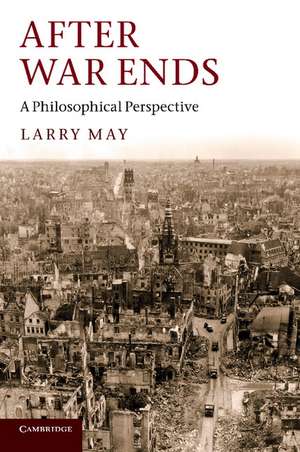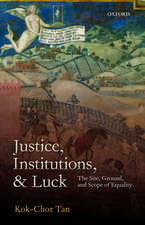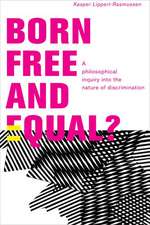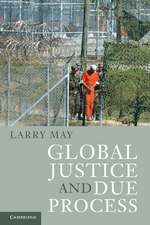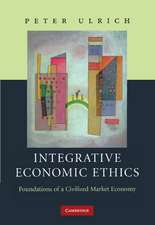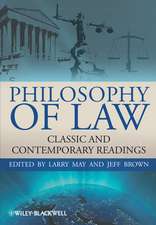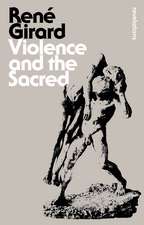After War Ends: A Philosophical Perspective
Autor Larry Mayen Limba Engleză Paperback – 18 apr 2012
| Toate formatele și edițiile | Preț | Express |
|---|---|---|
| Paperback (1) | 225.20 lei 6-8 săpt. | |
| Cambridge University Press – 18 apr 2012 | 225.20 lei 6-8 săpt. | |
| Hardback (1) | 561.04 lei 6-8 săpt. | |
| Cambridge University Press – 18 apr 2012 | 561.04 lei 6-8 săpt. |
Preț: 225.20 lei
Nou
Puncte Express: 338
Preț estimativ în valută:
43.09€ • 44.90$ • 35.68£
43.09€ • 44.90$ • 35.68£
Carte tipărită la comandă
Livrare economică 03-17 aprilie
Preluare comenzi: 021 569.72.76
Specificații
ISBN-13: 9781107603622
ISBN-10: 1107603625
Pagini: 260
Dimensiuni: 147 x 226 x 13 mm
Greutate: 0.43 kg
Ediția:New.
Editura: Cambridge University Press
Colecția Cambridge University Press
Locul publicării:New York, United States
ISBN-10: 1107603625
Pagini: 260
Dimensiuni: 147 x 226 x 13 mm
Greutate: 0.43 kg
Ediția:New.
Editura: Cambridge University Press
Colecția Cambridge University Press
Locul publicării:New York, United States
Cuprins
1. Introduction: normative principles of jus post bellum; Part I. Retribution: 2. Grotius, sovereignty, and the indictment of Al Bashir; 3. Transitional justice and the Just War tradition; 4. War crimes trials during and after war; Part II. Reconciliation: 5. Reconciliation of warring parties; 6. Reconciliation and the rule of law; 7. Conflicting responsibilities to protect human rights; Part III. Rebuilding: 8. Responsibility to rebuild and collective responsibility; 9. Responsibility to rebuild as a limitation on initiating war; Part IV. Restitution and Reparation: 10. Restitution and restoration in jus post bellum; 11. A Grotian account of reparations; Part V. Proportionality and the End of War: 12. Proportionality and the fog of war.
Recenzii
'After War Ends is a landmark text in the ethics of war that will form the starting point for debate on the issues of justice after war for many years to come. May's trademark synthesis of moral, legal and social argumentation is here deployed to superb effect. Essential reading for anyone seeking to make sense of recent military experience and map a better course for the future.' David Rodin, University of Oxford
'With this, his third book on Just War Theory, Professor May makes a massive contribution to our thinking about war's aftermath. The area of jus post bellum has not, until now, received the serious philosophical attention it deserves. May's lucid, comprehensive and fair account is sure to become the standard work in the field.' Nir Eisikovits, Suffolk University, Boston
'… fills a lacuna in the just war literature … Recommended …' S. D. Lake, Choice
'A timely and important reminder of the need for ethical guidance to govern practices after wars end.' David Fisher, International Affairs
'… a superb analysis of the moral, legal, and social concerns that the conclusion of armed conflict typically brings to the surface. May does not wallow in obtuse answers, but instead trades in a rich line of thoughtful argumentation and ethical instruction. … this is essential reading for anyone interested in thinking about war's aftermath or the ethics of war more generally.' Cian O'Driscoll, Social Theory and Practice
'With this, his third book on Just War Theory, Professor May makes a massive contribution to our thinking about war's aftermath. The area of jus post bellum has not, until now, received the serious philosophical attention it deserves. May's lucid, comprehensive and fair account is sure to become the standard work in the field.' Nir Eisikovits, Suffolk University, Boston
'… fills a lacuna in the just war literature … Recommended …' S. D. Lake, Choice
'A timely and important reminder of the need for ethical guidance to govern practices after wars end.' David Fisher, International Affairs
'… a superb analysis of the moral, legal, and social concerns that the conclusion of armed conflict typically brings to the surface. May does not wallow in obtuse answers, but instead trades in a rich line of thoughtful argumentation and ethical instruction. … this is essential reading for anyone interested in thinking about war's aftermath or the ethics of war more generally.' Cian O'Driscoll, Social Theory and Practice
Notă biografică
Descriere
This is the first book-length treatment of justice after war ends. Larry May combines here both philosophical and legal analysis.
